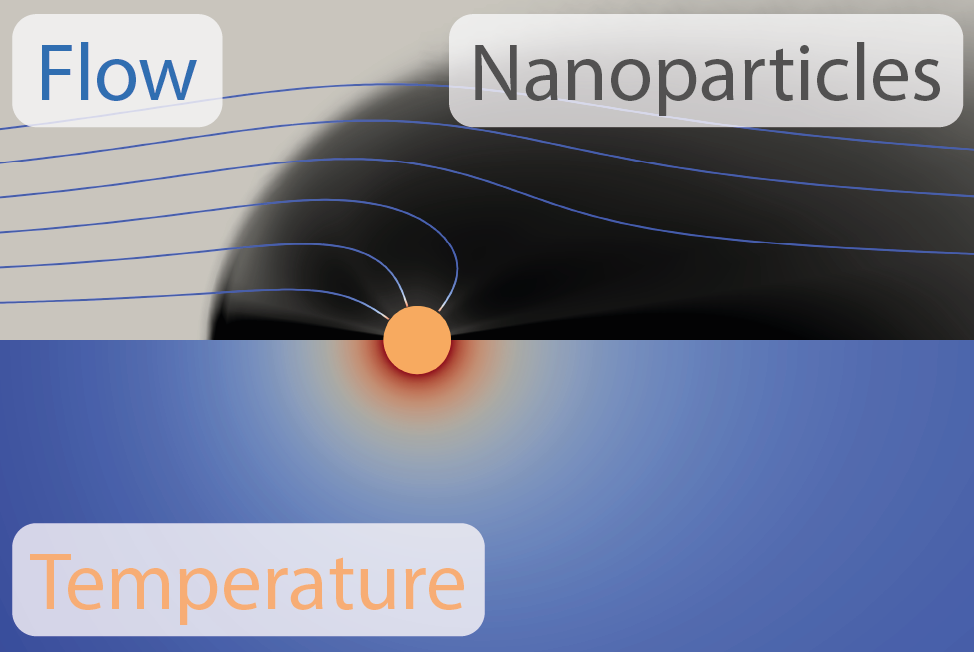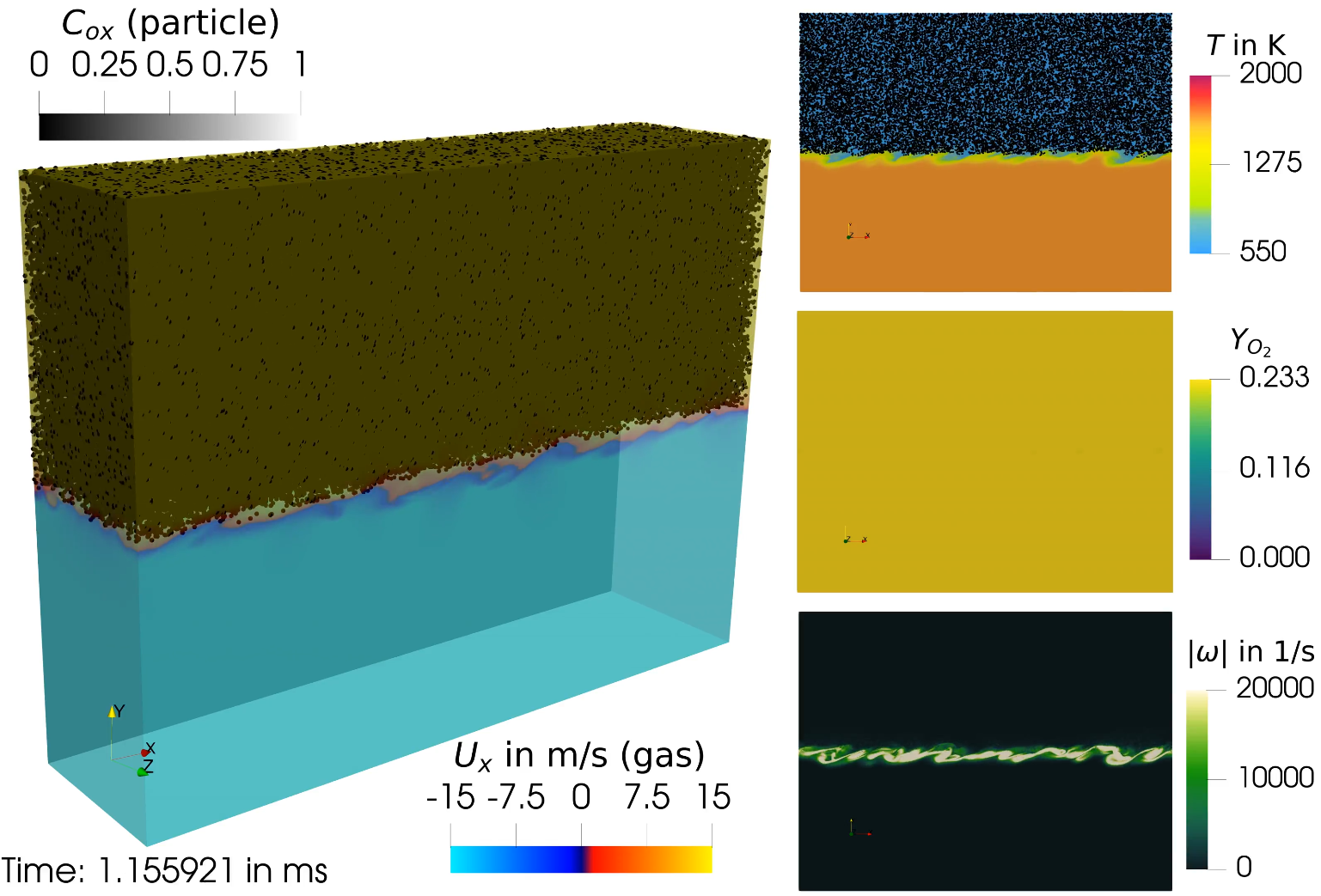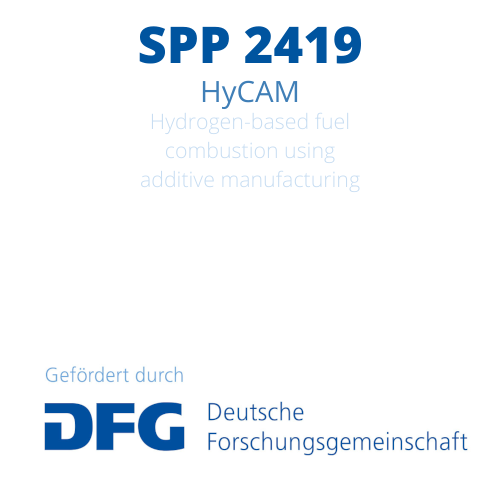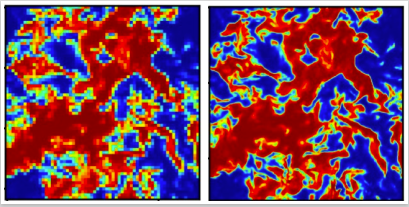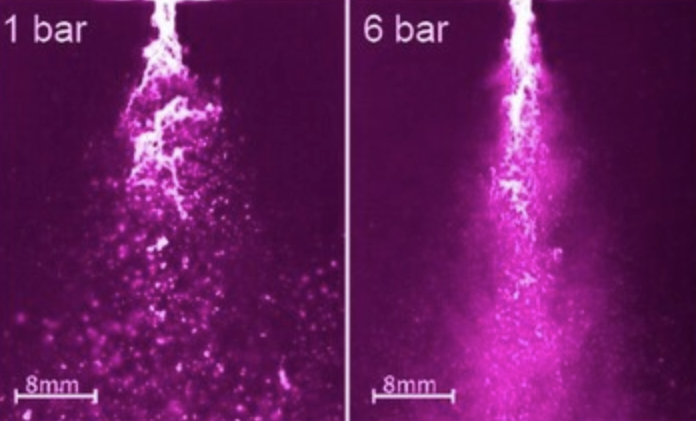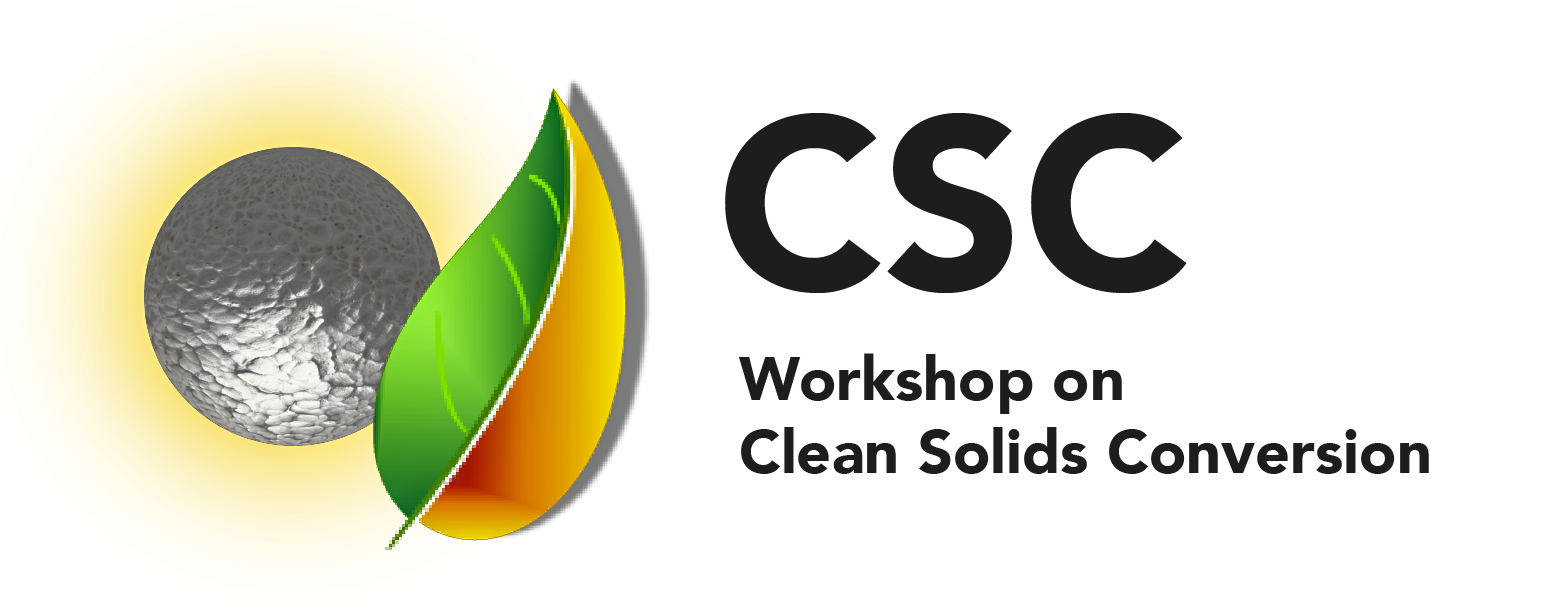Research objectives
The research of the Chair for Simulation of Reacting Thermo-Fluid Systems deals with the numerical modelling of reacting and mostly turbulent flows from gaseous, liquid and solid energy carriers. The chair is held by Prof. Dr. Oliver T. Stein. The major aims of our research are to (i) increase our fundamental understanding of complex reacting multiphase flows, to (ii) develop predictive simulation tools for such systems and to thereby (iii) contribute to the global transition towards a sustainable energy economy. We closely collaborate with our experimental colleagues both from Engler-Bunte-Institut and external project partners. We achieve our research goals by applying and developing a set of modelling and analysis tools as listed below.
Scientific research topics
- Direct numerical simulation (DNS) of turbulent reacting flows: DNS resolves all scales of turbulent flows, which results in highly accurate predictions of flows with low to intermediate turbulence levels for fundamental analyses.
- Large eddy simulation (LES) of turbulent flows with chemical reactions: LES resolves the large scales of turbulence, while modelling the small-scale processes, leading to accurate predictions of intermediate to highly turbulent flows in research and applications.
- Development of advanced LES models for reacting multiphase flows (liquid droplets and solid particles): The LES of multiphase flows usually requires the modelling of phase transitions to allow for reliable simulations.
- Sparse-Lagrangian Multiple-Mapping Conditioning (MMC) modelling for LES: MMC is a complex but highly efficient closure model for the LES of single and multiphase flow systems.
- LES techniques for population balance equation (PBE) modelling of particulate systems: Interaction processes like e.g. nucleation, condensation, coagulation, agglomeration and others within particle or droplet ensembles require advanced LES closure models.
- Machine learning approaches for turbulent reacting flows: Modern machine and deep learning techniques allow for the efficient modelling of complex systems, pattern recognition and feature analysis.
Research projects
|
|
Investigation of nanoparticle deposition in iron particle combustion The use of iron powder as an energy carrier permits the trade and global transport of renewable energy. The formation of iron-containing nanoparticles can be observed in the energy releasing iron combustion. This project employs different simulation methods to investigate the formation, transport, and deposition of such nanoparticles during combustion.
https://vbt.ebi.kit.edu/english/1215.php
|
|
|
Clean Circles - Iron as energy carrier in a carbon-free circular energy economy Iron as a reactive metal has enormous potential to boost the energy transition. The project Clean Circles teams up scientists from multiple disciplines to explore how the metal and its oxides can be used in a cycle as carbon-free chemical energy carrier to store wind and solar power.
Main project: https://www.tu-darmstadt.de/clean-circles/about_cc/index.en.jsp
Sub-project at EBI-TFS: https://vbt.ebi.kit.edu/english/1074.php |
|
|
The DFG priority programme PP 2419 HyCAM (Hydrogen-based fuel combustion using additive manufacturing) is concerned with the optimisation of thermochemical energy conversion processes for the flexible use of hydrogen-based renewable fuels using additive manufacturing processes. The joint subproject of KIT and TU Freiberg investigates non-premixed ammonia combustion in tailored porous inert media.
Main project: https://spp2419.itv.rwth-aachen.de/
Project funding organization: |
|
|
Sparse-Lagrangian particle methods for solid fuel combustion |
|
|
Deep learning methods for improved numerical simulation of pulverised biomass combustion |
|
|
Atomization is an essential part of the entrained flow gasification process, which is considered to be a key technology for the carbon-neutral production of chemicals and energy. Within MTET we investigate detailed computational models for the atomization of highly viscous liquids to establish a Virtual Spray Test Rig.
Main project:
Sub-project at EBI-TFS:
|


